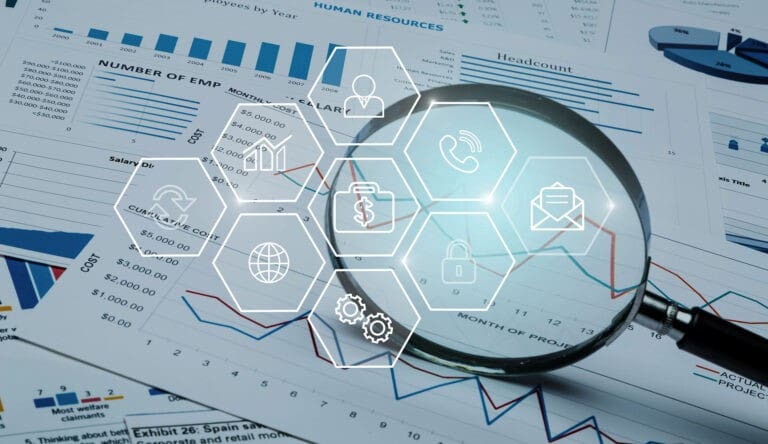The VAT Bulletin June 2025
Editors message
I am pleased to introduce our Bulletin with fantastic news on two fronts.
Firstly, my beloved Tottenham Hotspur won their first trophy in some seventeen years. I was lucky enough to obtain a ticket for the final in Bilbao and must admit to feeling more relief than joy when the final whistle blew! Good things come to those who wait I suppose, and I waited long enough! Before 2008, the last time we won a trophy was the FA Cup in 1991. That was the first date with my future wife (in a pub watching the game!) and we have been married for well over thirty years!
Secondly, I am very proud to share the news that we recently won Best Indirect Tax/VAT team at the prestigious Tolley’s Taxation awards – see more below! What we can’t celebrate are some of the practices of HMRC. The new penalty regime for late returns, for example, is causing particular concern which I explain later in the bulletin.
Contents
Success at Tolley’s Taxation Awards!
As mentioned earlier, I am delighted to announce that we have won Best Indirect Tax/VAT team award at the prestigious Tolley’s Taxation Awards.
It was a great honour to be chosen, and I must say it is a highlight of my career not only in personal terms but also for the team which I have grown from the ground up here at Gerald Edelman.
Over the last seven years, our team has more than doubled in size. We have a fantastic VAT compliance team who will persevere with HMRC until they reach a positive outcome no matter what obstacles HMRC present. Our advisory team are extremely experienced and will tackle the most complicated queries.
In the awards submission, we focused on how we deal with more complex issues and how our main goal is to provide an outstanding all-round service to our clients. We had great endorsements from satisfied clients which I am sure also helped secure our success.
What a fantastic evening and we were delighted to receive our award from comedian Tom Allen!
Capital Goods Scheme changes
The Capital Goods Scheme (CGS) was introduced in 1990 and was a way of ensuring that large amounts of VAT incurred on capital expenditure would be looked at in terms of taxable use over the ‘life’ of the asset. For buildings and land, the CGS threshold was £250,000 (VAT exclusive) of capital expenditure over a period of ten years and computers, aircraft and boats were added in 2011 with a value of £50,000 (VAT exclusive) being reviewed over a five year period. The calculation is reviewed every year for ten (or five) years to monitor the taxable use of the asset and input tax adjustments made as appropriate during the designated ‘life’ of the asset.
In the Spring Statement, it was announced that the expenditure threshold was being increased to £600,000 for land and buildings and that items of computer equipment will be removed from the scheme completely.
It is a welcome change that the threshold has been significantly raised. However, as the £250,000 limit has been in place since 1990, it could be argued that with inflation this figure should be in excess of £700,000 in today’s terms.
It is therefore clear that even with the proposed increase in threshold, most acquisitions and many refurbishments will still be caught. Increasing the threshold to £600,000 will remove an estimated 105,000 commercial properties from being subject to the scheme and therefore reduce the administrative burden on small businesses. These changes will take effect at a later, unspecified date within this parliament.
This change may impact newly registered private schools as under the current rules they are benefiting from VAT recovery on building works meeting the £250,000 threshold. The fact that the CGS limits have not being adjusted for inflation since 1990, means that private schools are likely to benefit from the historical low rate. In effect, because schools have previously made exempt supplies, now they are VAT registered they can claim input tax back on the relatively low threshold.
It is important that any business or organisation planning future capital works take note of this new proposed threshold, especially where VAT recovery is of importance. Timing may be of the essence as if the threshold increases, expenditure below that level may no longer qualify for CGS adjustments, or VAT recovery, in the same way. Presumably, the new threshold will only apply to future expenditure and not have a bearing on expenditure or the calculations currently within in the CGS.
Error corrections
During the pandemic, HMRC seemed to ensure that repayments for error corrections were made a priority.
This practice seems to have continued but has had unintended consequences. We dealt with a recent case where a business submitted a VAT return, then realised that it had omitted a charge to an associated business. The associated business’ VAT return was for the same period and had also been submitted. Considering the amounts involved, error corrections for underdeclared and underclaimed tax were submitted. Default interest would not have been due on VAT returns with a period ending on or before 31 December 2022, because there was no commercial restitution. Now, however, interest is charged on the amount due on any tax underdeclared.
Both error corrections took some time, but the repayment claim was processed some four weeks earlier than the underdeclared tax amount. The error correction for underdeclared output tax was sent two weeks after the return was submitted, but took ten weeks for HMRC to process. The taxpayer was charged twelve weeks interest. Considering that the interest charge is quite high (at 4% above base rate), it does feel that HMRC are benefitting from their own delays. At the same time, by repaying VAT owed earlier (at 1% below base rate), HMRC paid less days in interest to the taxpayer owed money. While we are sure this is not a deliberate attempt to make money, it does seem a little unfair. We will be raising this point with HMRC and suggesting that the clock is stopped regarding interest when the error correction is received by them.
In practice, we advise our clients to pay any tax and interest due up to the date of submission so that the interest clock stops completely.

Let’s get started
Contact page
Contact Us






